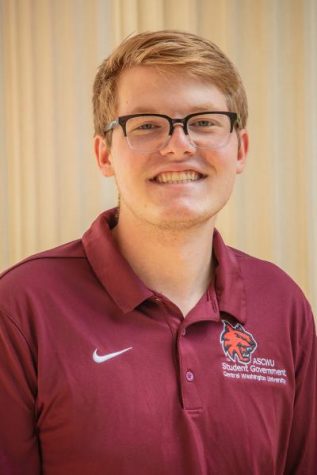Students lobby in Olympia
January 22, 2020
Editor’s note: In the Jan. 23 edition of The Observer, it was printed that SB 5395 (sex ed) died in the senate committee last year when it actually died in the house committee. There were also inaccuracies in the eligibility portion which now directly references the language of the bill.
_______________________________________________________________________________________________
ASCWU Vice President of Legislative Affairs Zackary Turner has been in Olympia lobbying in the interest of public university students.
There are two prominent bills with potential to affect both students statewide and the local community in this session. One is House Bill (HB) 2158, which established the Washington College Grant (WCG) Program. The second is Senate Bill (SB) 5395, which would require a standardized implementation of sex education in K-12 public schools across the state.
HB 2158 established the WCG to function in place of the State Need Grant (SNG). It removed the waitlist system SNG operated on and expanded the applications that students can use the grant money for. Undergraduate students can use the funds at approved universities in Washington state, including CWU, or towards other career training experiences like apprenticeships. Some students could qualify for grants that would pay 100% of their tuition and fees.
“It makes it so about 100,000 or so students starting next year … qualify for it, so they don’t have to pay any tuition or fees under the Washington College Grant,” Turner said. “Somewhere around 22% of Central’s students will get to utilize this next year, starting in the fall.”

There are certain criteria a student must meet to be eligible, such as being a Washington state resident, not already having a bachelor’s degree and having a family income level at or below 70% of the state median, scaled to account for family size, among others. To apply, students who qualify only need to fill out the FAFSA.
Senate Bill (SB) 5395 states it would require public schools grades K-12 to adopt “comprehensive sexual health education” that is “evidence-informed, medically and scientifically accurate, age-appropriate, and inclusive for all students regardless of their protected class status.”
Though it would become required curriculum for schools, parents would be able to individually opt out their children.
Unlike HB 2158, SB 5395 is currently in the approval process. This is the second session in which it’s been submitted. After its submission last year, it was not accepted by the House Committee.
Elementary Education and Middle Level Math major Anita Patten approved of the changes SB 5395 would make, advocating to provide students with knowledge about puberty.
“If you added that education slowly and at an age appropriate level, it would reduce that awkwardness and embarrassment,” Patten said. “As a future educator, I think this is great.”
Some of the ways students can get involved in the legislative process are available directly on campus.
According to Turner, registering to vote is one of the most important things students can do. He added exercising the right to vote is “showing that we are truly [legislators’] constituents, and that they represent us and we have the power.”
ASCWU is also working to make opportunities for involvement more accessible on campus than ever before. A voting center was held in the SURC on Nov. 5 2019, at which almost 500 students voted and around 50 new voters were registered. According to ASCWU Policy Director Semir Ibrahimovic, it was the first in the state on a college campus with both registration and voting available in the same place.


Laura Minchew • Jan 26, 2020 at 11:15 am
Very informative article. Well written and helpful for those who qualify.